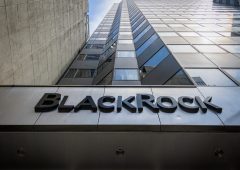Coinbase Refutes Allegations of Campaign Finance Misconduct
03.08.2024 13:00 1 min. read Alexander Stefanov
Crypto exchange Coinbase has dismissed allegations that it violated campaign finance regulations.
On July 30, crypto analyst Molly White claimed that Coinbase’s $25 million donation to the crypto-oriented PAC Fairshake might have breached campaign finance laws. She noted the donation was made during Coinbase’s negotiations for a federal contract with the US Marshals Service (USMS), which the company later secured to manage seized digital assets.
White highlighted that federal law bars entities involved in federal contracts from making political contributions to avoid potential conflicts of interest. She asserted that if true, this would be a significant breach, far exceeding previous violations capped at $1 million.
Paul Grewal, Coinbase’s Chief Legal Officer, countered White’s assertions, labeling them as inaccurate. He explained that Coinbase does not qualify as a federal contractor under the specific regulation (11 CFR 115.1) since the USMS is not paying Coinbase with federal funds.
Instead, the payments come from the Assets Forfeiture Fund, which consists of proceeds from confiscated property, not taxpayer money.
Grewal’s statement emphasized that the regulatory definition of a federal contractor involves entities paid with appropriated funds, which is not the case with Coinbase’s arrangement with the USMS.
-
1
FTX Pushes to Dismiss Billion-Dollar Claim from 3AC
23.06.2025 15:00 1 min. read -
2
BIS Slams Stablecoins, Calls Them Ill-Suited for Modern Monetary Systems
26.06.2025 9:00 1 min. read -
3
ARK Invest Cashes In on Circle Rally as Stock Soars Past $60B Valuation
24.06.2025 19:00 1 min. read -
4
Trump’s ‘Big, Beautiful Bill’ Approved: What It Means for Crypto Markets
04.07.2025 7:00 3 min. read -
5
FTX Pushes Back Against $1.5B Claim From Defunct Hedge Fund 3AC
23.06.2025 11:00 1 min. read
Coinbase Strengthens DeFi Push With Opyn Leadership Acquisition
Coinbase has taken a major step toward expanding its decentralized finance (DeFi) presence by bringing onboard the leadership team behind Opyn Markets, a prominent name in the DeFi derivatives space.
Grayscale Urges SEC to Allow Multi-Crypto ETF to Proceed
Grayscale Investments has called on the U.S. Securities and Exchange Commission (SEC) to allow the launch of its multi-crypto ETF—the Grayscale Digital Large Cap Fund—arguing that further delays violate statutory deadlines and harm investors.
Robinhood Launches Ethereum and Solana Staking for U.S. Users
Robinhood has officially introduced Ethereum (ETH) and Solana (SOL) staking services for its U.S. customers, offering a new way for users to earn rewards on their crypto holdings.
Binance CEO Reveals What’s Fueling the Next Global Crypto Boom
Binance CEO Richard Teng shared an optimistic outlook on the future of cryptocurrencies during an appearance on Mornings with Maria, highlighting growing global acceptance, regulatory progress, and strategic reserve integration.
-
1
FTX Pushes to Dismiss Billion-Dollar Claim from 3AC
23.06.2025 15:00 1 min. read -
2
BIS Slams Stablecoins, Calls Them Ill-Suited for Modern Monetary Systems
26.06.2025 9:00 1 min. read -
3
ARK Invest Cashes In on Circle Rally as Stock Soars Past $60B Valuation
24.06.2025 19:00 1 min. read -
4
Trump’s ‘Big, Beautiful Bill’ Approved: What It Means for Crypto Markets
04.07.2025 7:00 3 min. read -
5
FTX Pushes Back Against $1.5B Claim From Defunct Hedge Fund 3AC
23.06.2025 11:00 1 min. read


